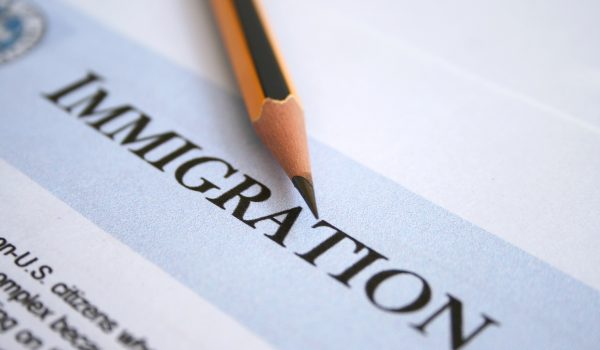The attorneys at Frost Brown Todd are here to summarize the most relevant and impactful immigration updates of the month.
Travel Ban on Certain Nonimmigrants Sunsets
The Department of State announced that Presidential Proclamation 10052 which had suspended the entry of certain H-1B, H-2B, L, and J nonimmigrants expired on March 31, 2021. These visa applicants will now have their applications prioritized. As indicated in the announcement, applicants who were previously refused visas because of the Presidential Proclamation 10052 may reapply by submitting a new application with a new fee.
H-1B Initial Selection Completed
On March 30, 2021, U.S. Citizenship and Immigration Services (USCIS) announced that it completed the initial selection for the Fiscal Year 2022 H-1B Lottery. Registrations with the notation “Selected” received Selection Notices and instructions for filing an H-1B petition on behalf of the listed beneficiary between April 1 through June 30. Those petitions must also have a start date of October 1. “Submitted” cases remain eligible for selection if there are any subsequent selections unless they are invalidated. “Denied” cases are the result of multiple registrations by the same registrant for the same beneficiary. All duplicate registrations are invalidated. Finally, “Invalidated-Failed Payment” cases mean the payment method was invalid.
Form I-9 Flexibility Continues
The Department of Homeland Security (DHS) and U.S. Immigration and Customs Enforcement (ICE) announced that the flexibility regarding completion of Section 2 will be extended to May 31, 2021. As previously reported, employers with no employees at a worksite will not be required to review the employee’s identity and employment authorization documents in the employee’s physical presence. Instead, employers may inspect the Section 2 documents remotely (e.g., over video link, fax, email, etc.).
OPT Flexibility for Applications Affected by Late Receipt Notices
F-1 students are permitted to apply within a prescribed timeframe for employment authorization to engage in optional practical training (OPT) for 12 months during the 14 months immediately following the end of their program. Because USCIS is experiencing significant delays in issuing receipt notices, it decided to provide flexibility for the OPT period. F-1 students whose Form I-765, Application for Employment Authorization, was received on or between October 1, 2020 – May 1, 2021 are eligible for this flexibility. The flexibility allows qualifying F-1 students to begin counting the 14-month period from the date their Form I-765 is approved. If a qualifying F-1 student is approved for less than the OPT time requested (not to exceed 12 months) that student may request a correction of the employment authorization document (EAD). USCIS will issue a corrected EAD with a new end date to allow for the full amount of OPT requested.
F-1 students whose applications were rejected and who are now outside the prescribed timeframe for filing, may refile their Form I-765 for OPT or STEM OPT using the original filing date if:
- the original, timely filed application was received on or between October 1, 2020 and May 1, 2021; and
- the refiled application is received by USCIS by May 31, 2021.
The re-filed application should include a copy of the rejection notice.
Reversal of Inadmissibility on Public Charge Grounds Rule
USCIS has returned to its prior guidance regarding public charge inadmissibility determinations for non-citizens. That standard is that “an individual who is likely at any time to become a “public charge” is inadmissible to the U.S. and ineligible to become a legal permanent resident.” Receiving public benefits under that standard does not automatically make an individual a public charge, rather the government looks at whether the noncitizen is likely to become “primarily dependent on the government for subsistence, as demonstrated by either the receipt of public cash assistance for income maintenance, or institutionalization for long-term care at government expense.”
The Inadmissibility on Public Charge Grounds rule finalized during the Trump administration had fundamentally changed the standard for determining inadmissibility and had required extensive amounts of documentation. Specifically, it changed the definition of public charge to mean an individual who receives one or more designated public benefits for more than 12 months, in the aggregate, within any 36-month period. Public benefit was defined to include Supplemental Security Income (SSI), Temporary Assistance to Needy Families (TANF), Supplemental Nutritional Assistance Program (SNAP), most forms of Medicaid, and certain housing programs.
On March 9, 2021, USCIS stopped applying the Inadmissibility on Public Charge Grounds Rule to all pending applications and petitions. If information previously required by the Inadmissibility on Public Charge Grounds rule has already been provided, USCIS will not consider that information. In addition, USCIS has revised its forms to no longer request this information or related documentation.
TPS Designation for Venezuela and Burma
The Secretary of Homeland Security recently designated Burma and Venezuela for Temporary Protected Status (“TPS”) for 18 months. These new designations permit Burmese and Venezuelan nationals to file initial applications for TPS so long as they meet the eligibility requirements. These individuals must file their applications within the registration period. The registration period for Venezuela is March 9 to September 5, 2021, and the Burma registration period will be published in an upcoming Federal Register notice. TPS applicants may also apply for Employment Authorization Documents and for travel authorization.
Premium Processing for E-3
The USCIS expanded premium processing service to E-3 petitions. The E-3 classification applies to Australian nationals who are coming to the U.S. to work in a specialty occupation. If an E-3 non-immigrant is in the U.S. and needs an extension of status, the E-3 petitioner can file a Form I-129, request premium processing, and pay the related fee. This request will expedite processing and the petition will be adjudicated within 15 calendar days unless a Request for Evidence is issued.
If you have questions relating to these topics, please contact Peggy Shukairy, Alicia Visse-Kroger, or Emily Tanji in Frost Brown Todd’s Labor and Employment Practice Group

